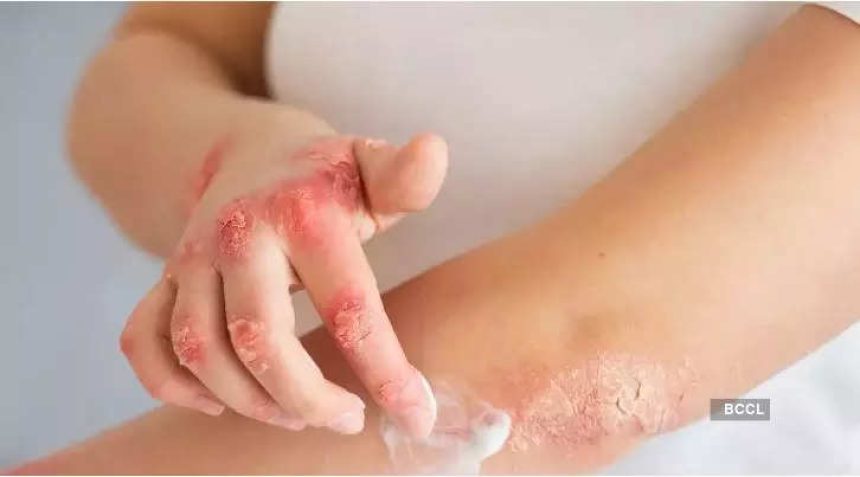With the onset of winter and dry weather, many people with psoriasis experience disease flares and severe symptoms. Psoriasis is an autoimmune, chronic, and non-communicable disease that causes inflammation. Some common symptoms of psoriasis include skin rashes, discolouration of skin in certain areas, itchiness, cracks that may bleed, etc.
Generally, skin areas of knees, feet, hands, elbows, nails, and toenails are affected. Globally, around 125 million patients are affected by psoriasis. India sees approximately 10 million cases annually.
Psoriasis and winters: What is the connection?
For patients with psoriasis, winters can be the most challenging and troublesome to manage psoriasis. “One of the primary reasons is dry weather with a lack of humidity and low exposure to sunlight. Dry weather can diminish the moisture content of the skin, leading to dehydration of the skin, increased skin irritation, increased dryness, and flakes, explains Dr. Sushil Tahiliani, consultant dermatologist, Dr. Tahiliani’s Skin Clinic, Mumbai.
Thus, aggravating skin conditions and triggering psoriasis flares, if left untreated and unattended.
Six things to do to prevent psoriasis flares:
-
Use good moisturisers: One of the important aspects to be considered for better management of psoriasis during winter is to keep your skin moisturized. One can consider good moisturisers that are thick and fragrance-free to avoid skin irritation. Apply thick moisturisers to keep your skin protected and hydrated at regular intervals. Use moisturisers after every bath and hand wash.
- Use a humidifier: For people with psoriasis, maintaining skin moisture is imperative to avoid skin irritation and dryness. One can consider using a humidifier at home to maintain skin moisture levels.
-
Opt for cotton layers: During winter, one tends to wear woollens. According to Dr. Sachin Varma, Chief Dermatologist and Medical Director, Skinvita Clinic, Kolkata, “In terms of precautions, one should be careful regarding winter clothing as wool generally has a rough texture, which may lead to itchiness and discomfort. Also, thick clothes can cause sweating, which might worsen psoriasis.” Consider layers of cotton clothes as an immediate contact with your skin or soft, warm clothes to avoid skin rashes. Woollens could be worn over cotton clothes.
-
Keep yourself hydrated: During winters, one tends to skip water intake owing to cold weather. The body and skin need to be healthy to manage psoriasis better. One should drink plenty of water to keep the skin moist and prevent dryness.
-
Keep stress away: Studies have proven that stress is one of the major triggers that causes plaquing of skin for people with psoriasis. Stress may worsen psoriasis symptoms. One should try relaxing exercises to keep stress at bay.
- Sunlight exposure and avoiding sunburn: Short, regular exposure to natural sunlight may also help improve psoriasis symptoms and prevent flares. Avoid prolonged sun exposure as it may damage the skin and cause sunburn, which is a common cause of psoriasis flares.
Dr. Varma says, “Over and above, a mild soap or body wash is recommended for use. Frequent hand washes should be avoided, and only a mild hand wash should be considered. Also, bathing should be restricted to 10 minutes or under. Use of very hot water for a shower is not recommended.”
Eating a healthy, balanced diet, getting proper sleep, engaging in moderate physical activity, and avoiding triggers can help in better management of psoriasis.
It is recommended to visit your nearest dermatologist or skin doctor if one witnesses any worsening symptoms or psoriasis flares. “Your dermatologist may suggest appropriate treatment options (creams, ointments, or even targeted therapies) based on the severity of your disease. Timely intervention will help reduce the inflammation and can control the worsening of your skin condition,” concludes Dr. Tahiliani.
To stay updated on the stories that are going viral follow Indiatimes Trending.







